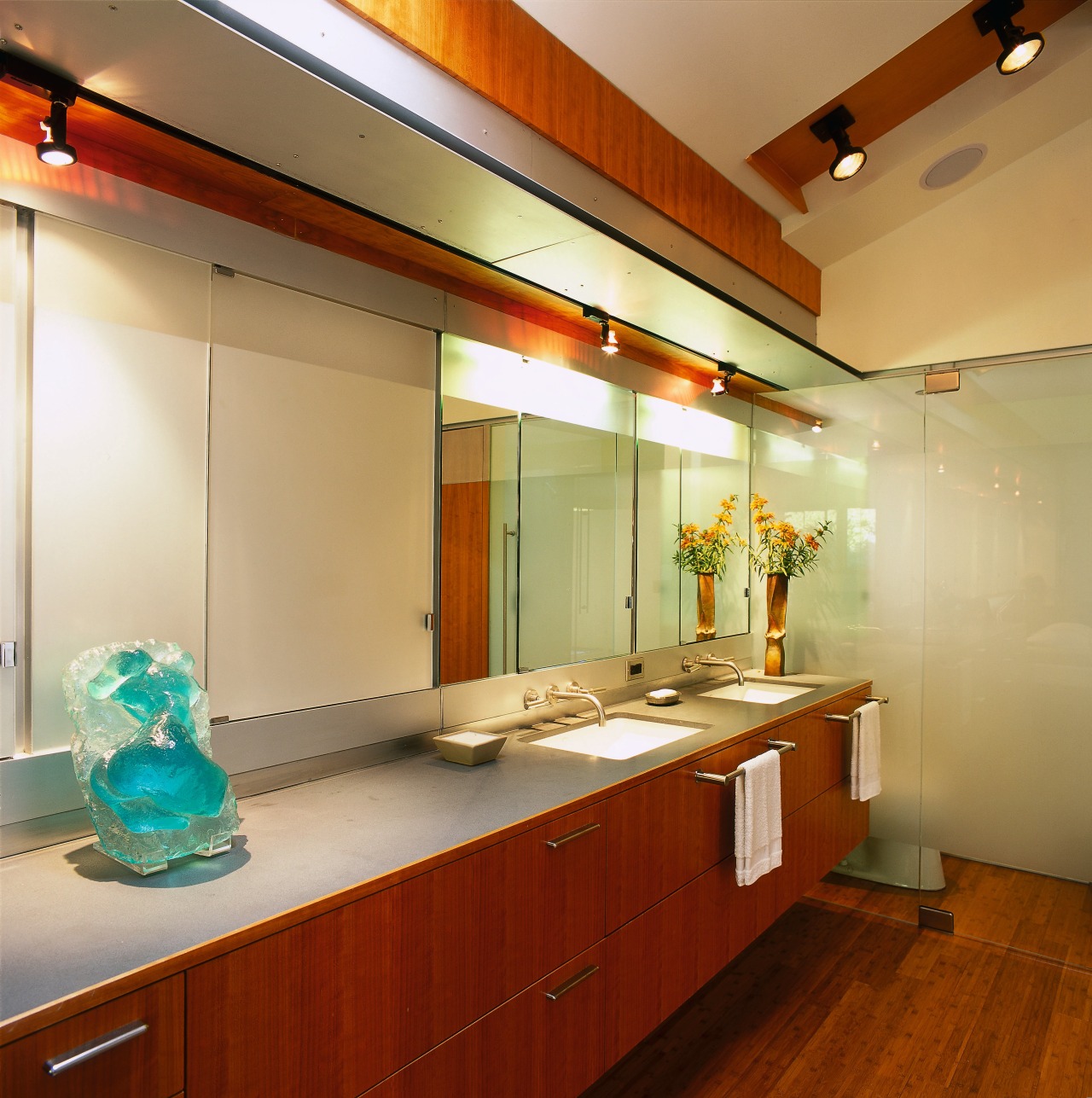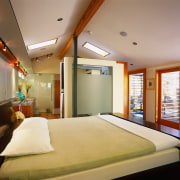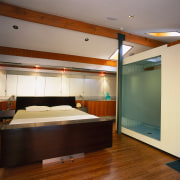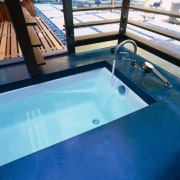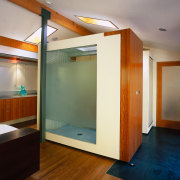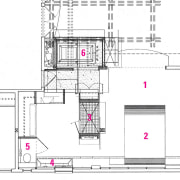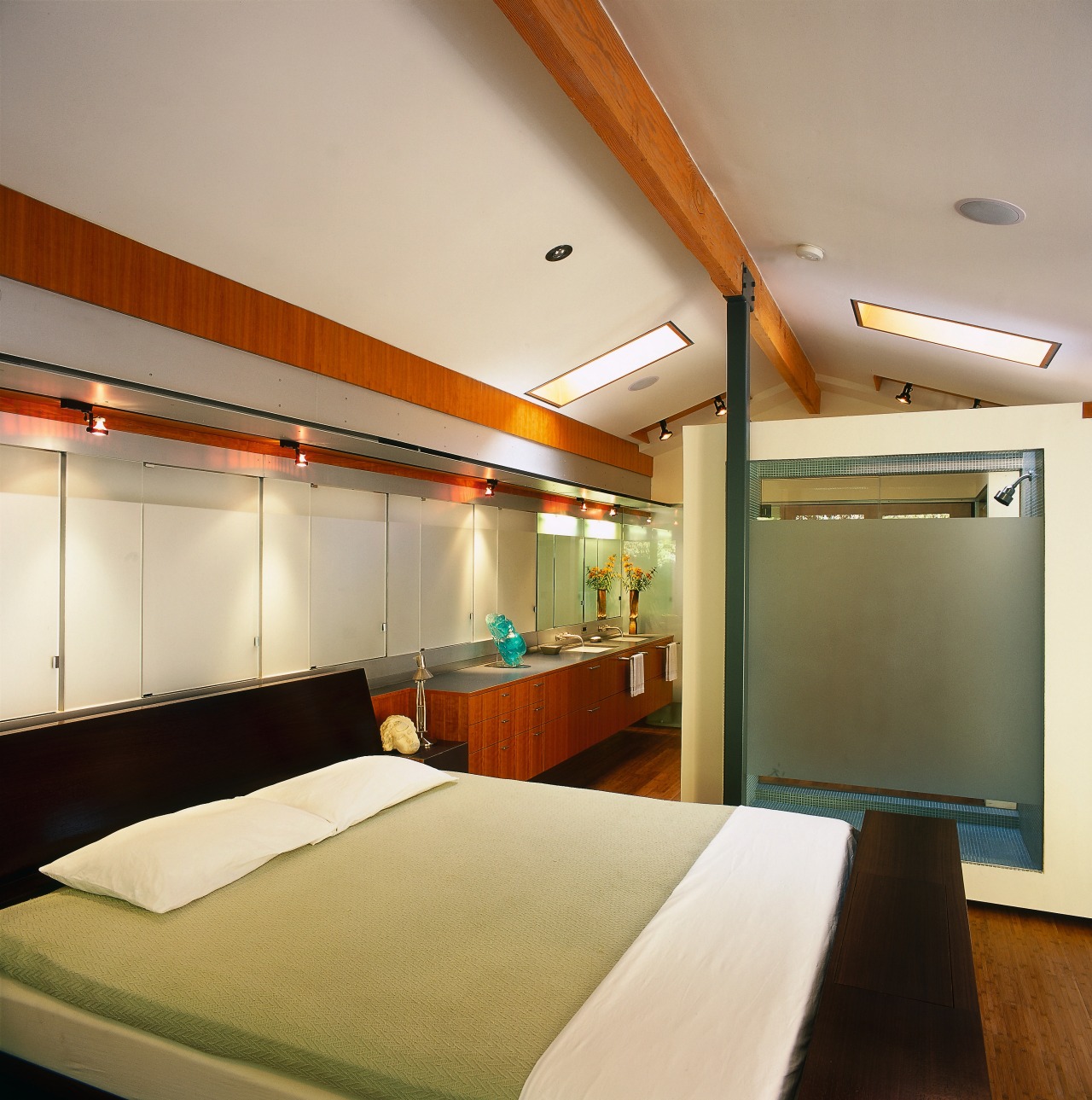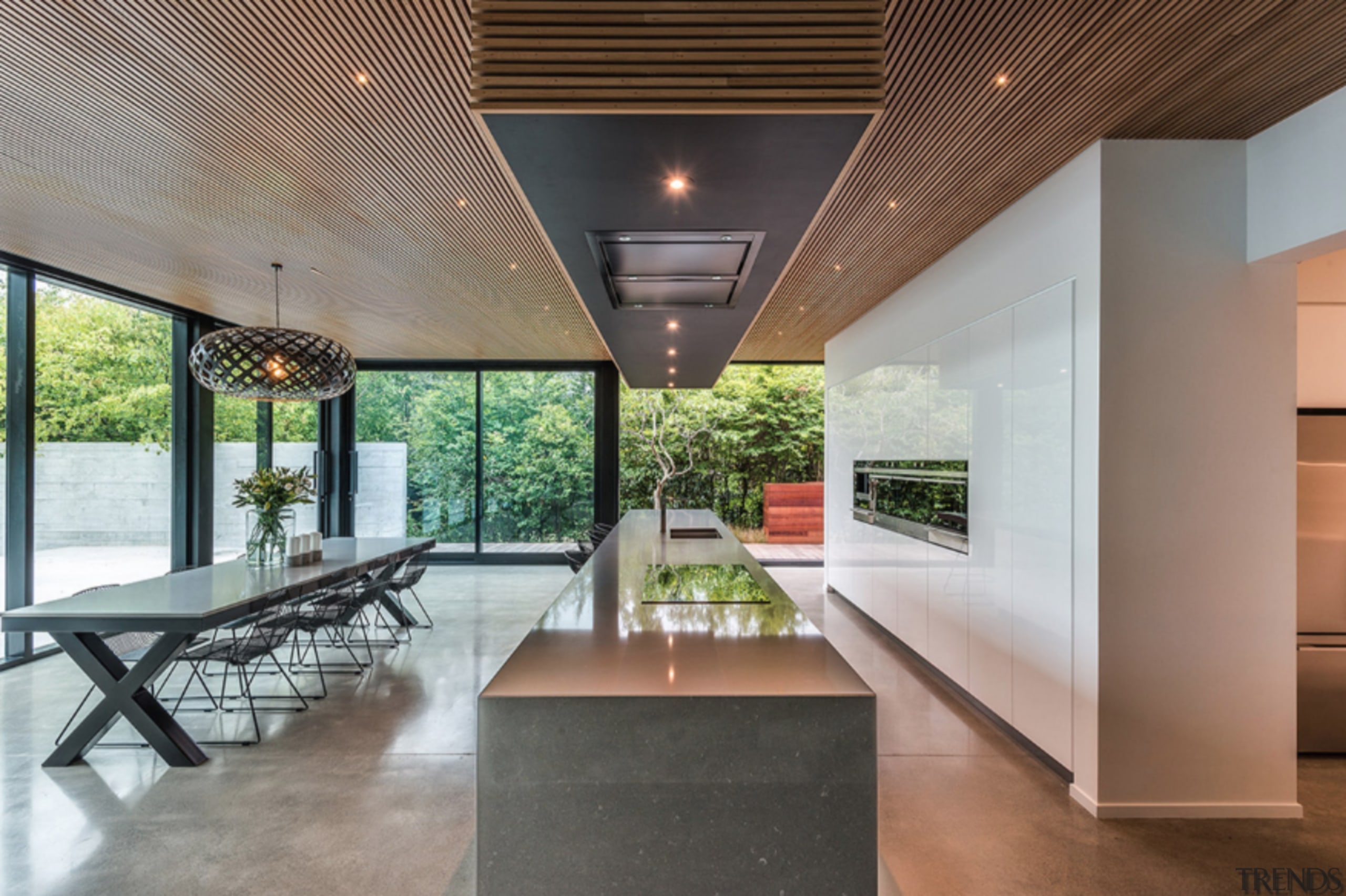Nothing to hide
Inspired by the Zen-like quality of Asian architecture, this remodeled master suite is spacious,open and filled with light
Open-plan is a term more frequently applied to a living room than a master suite. But the idea of all-in-one sleeping and bathing spaces is becoming popular.
When it came to remodeling the master suite of their house, owners Aura and Fred Kuperberg chose the most radical of three schemes proposed by Jose Fontiveros and Mariana Boctor of Sintesi Design.
Their design transformed the previously cramped, compartmentalized space into a large, open-plan room with the bathroom and bedroom zones visually separated by a glazed, floating shower box.
"The shower is normally pushed into the corner of the bathroom," says Fontiveros. "We wanted to make it a feature by placing it in the center of the room."
Not simply a functional element, the shower was also conceived as a sculptural feature. With the walls raised slightly off the ground, the shower box appears to float just above the bamboo floor.
A void in the top opens to a skylight above, allowing the sun to reflect off the glass tiles that line the interior walls of the shower.
The four exterior sides are finished in a range of materials, including clear and frosted glass, Masonite and cherry wood for the linen cabinet.
"We tried to include some inexpensive materials, like the lacquered Masonite, to balance out the cost of more expensive finishes, such as the glass mosaic tiles," says Boctor.
The bathroom end of the suite features a separate toilet with an etched-glass wall. Adjacent to this, the cherry vanity unit acts as a connecting element between the sleeping and bathing areas, extending along the entire length of the suite to form the night stand behind the bed.
"Like the shower and bed, the vanity is raised off the floor to reinforce the sense of space, creating a clean, minimalist look," says Boctor. "Continuing the vanity along the wall helped tie everything together."
Insufficient storage space was a major shortcoming of the original bathroom design.
To counter this, Boctor and Fontiveros had eight discreet storage units fitted into the wall above the vanity top. At the bed end of the room, these four-inch-deep cavities house racks for ties and jewelry. Behind the vanity mirror, they provide storage for toiletries.
Credit list
Design team
Builder
Cabinetry and other joinery
Bath
Shower stall
Flooring
Lighting
Glasswork
Interior design
Vanity
Faucets
Tiles
Hot water systems
Windows
Story by: Trendsideas
Home kitchen bathroom commercial design
Expanded presence
Light and refined
Sculpted by the wind and sun
